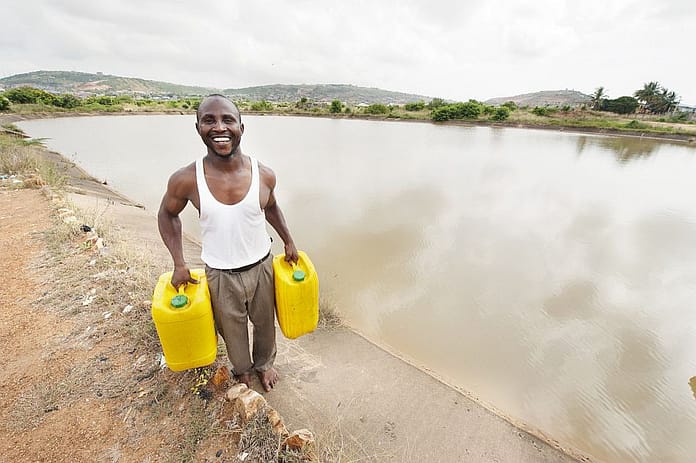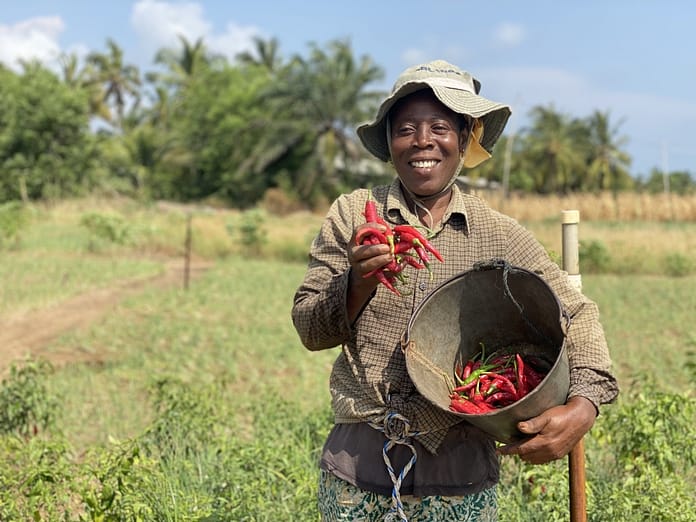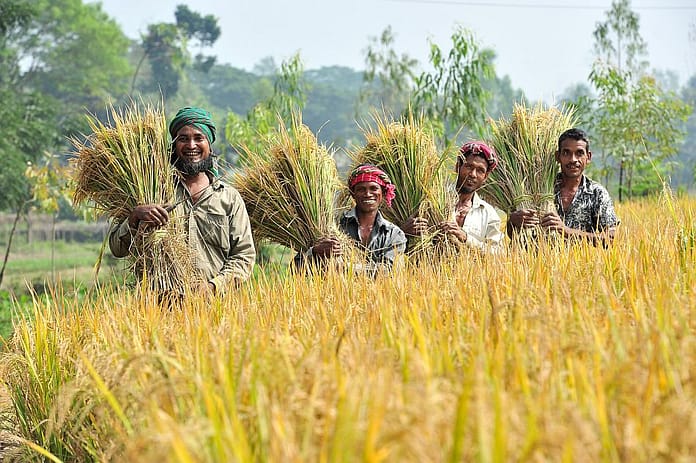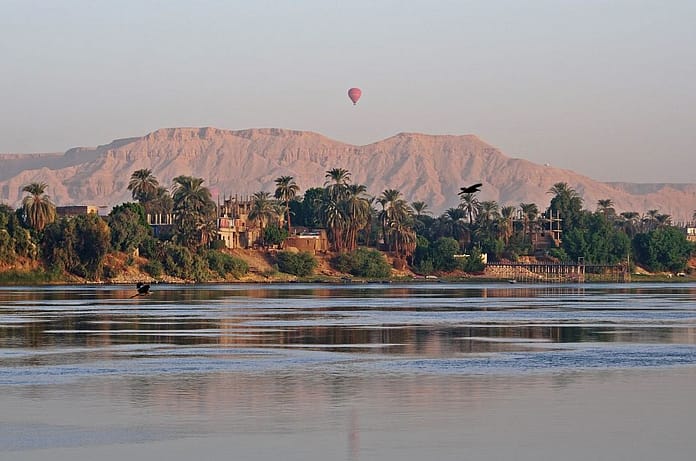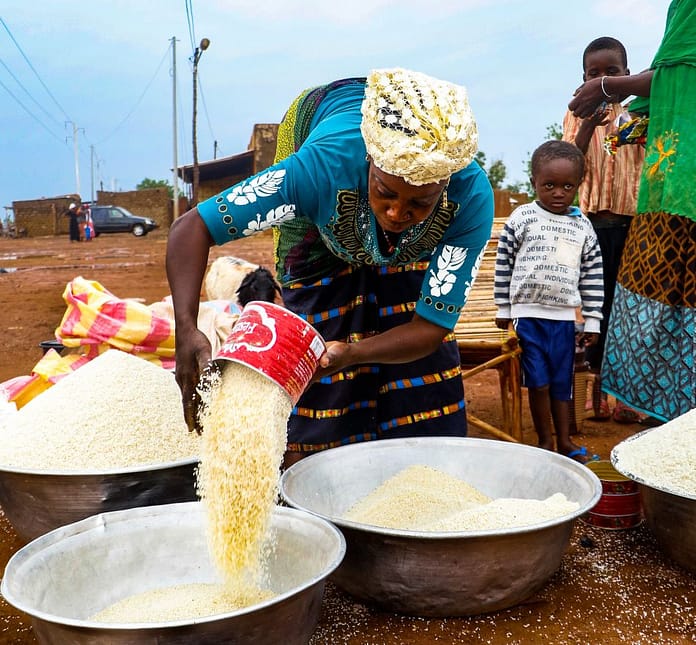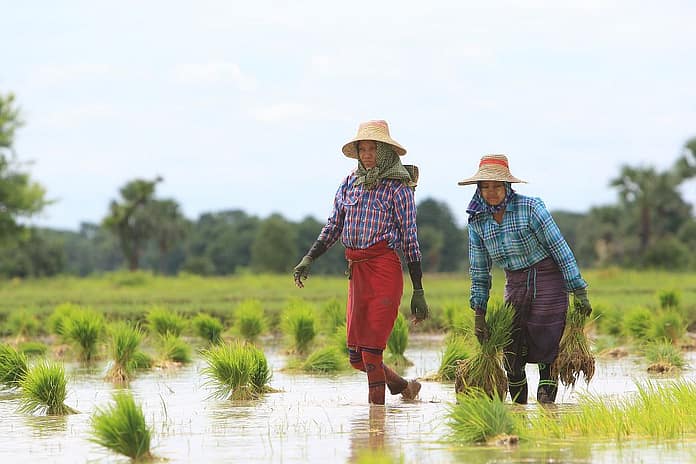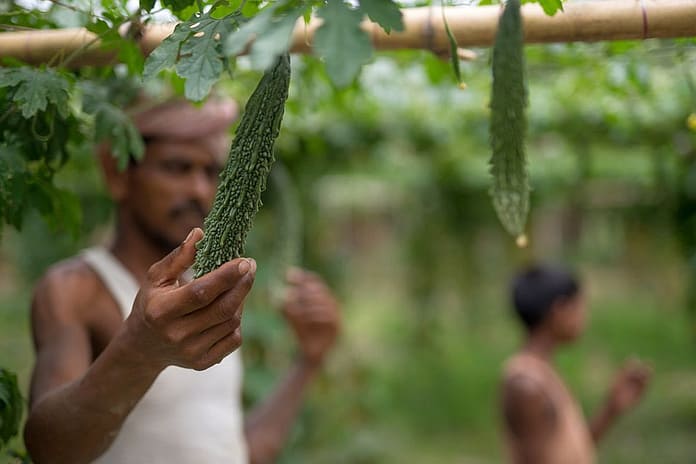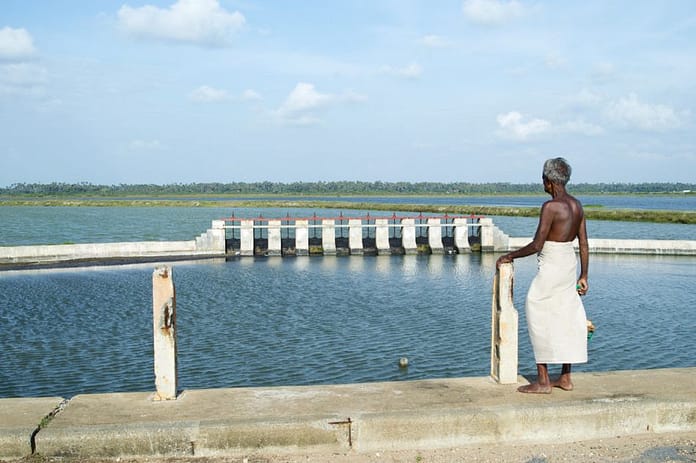Rethinking food waste, climate risk, and more: A roundup of IWMI contributions to research articles in April 2022
By Clara Colton Symmes, Princeton in Asia Fellow, IWMI
Every month, IWMI researchers collaborate on studies that explore the deeply interconnected relationships between humans and water systems. Explore the links below to learn more about some of their work published in April 2022, tackling subjects as diverse as food waste, climate risk, natural disasters, and mental health.
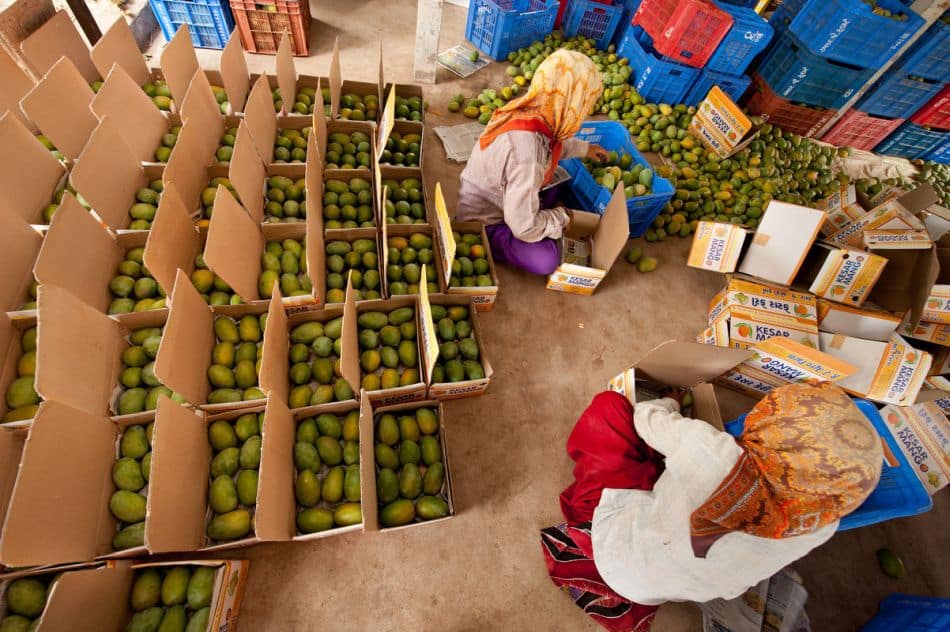
Food waste to livestock feed: Prospects and challenges for swine farming in peri-urban Sri Lanka
IWMI’s Nilanthi Jayathilake, Mohamed Aheeyar, and Pay Drechsel collaborated on a study published in Circular Economy and Sustainability on food waste as livestock feed in the regions surrounding Colombo, Sri Lanka. Piggery farmers in the area rely on food waste for about 82 percent of total feed, collecting the food waste from hotels, restaurants, and institutional canteens. This process is beneficial both for farmers (who get low-cost or free feed) and institutions (who enjoy a reliable food waste removal service), as well as the municipality that would otherwise be responsible for waste collection. Some challenges to scaling-up the program exist, including low food waste supply due to seasonal ebbs and flows in tourism numbers and the COVID-19 lockdown, as well as the lack of regulation around biosafety. Despite these roadblocks, however, the researchers emphasize the potential of these informal partnerships to be scaled up, while keeping costs for farmers low and introducing biosafety monitoring.
Read more here.
Climate-related hazards and Indian food supply: Assessing the risk using recent historical data
Intensifying climate risks — including floods, droughts, and extreme temperatures — lead to agricultural losses that impact farmers, sellers, and those who rely on them. In an article published in Global Food Security, a team of researchers including IWMI’s Giriraj Amarnath estimated the degree to which climate hazards could impact food supply in India. The researchers calculated impact on a state-by-state basis, finding that states where food was locally produced as opposed to imported were more susceptible to impacts from climate hazards. The article recommends that policymakers prioritize the mitigation of climate hazards, especially in the more vulnerable regions, in order to make the food system more resilient.
Read more here.
Community disaster exposure and first onset of depression: A panel analysis of nationally representative South African data, 2008–2017
The influence of climate change on physical health — especially in the Global South — is widely researched and discussed, given that climate disasters impact food, housing, and the availability of medicine. But often less emphasized is the impact of these disasters on mental health. IWMI’s Tafadzwanashe Mabhaudhi recently contributed to a study published in PLOS Climate exploring how disaster exposure can result in the first onset of depression in South Africa. During the study, about 17 percent of the more than 17,000 participants experienced a disaster, and a strong association between disaster and the first onset of depression was established. Rates of depression were especially high among vulnerable groups, such as women and girls, Black Africans, and low-income populations. Moving forward, researchers emphasized the importance of investing in mental health support for disaster survivors, specifically for these vulnerable groups
Read more here.
Selective border permeability: Governing complex environmental issues through and beyond COVID-19
During the COVID-19 pandemic, many countries in Southeast Asia closed their borders to reduce the spread of the disease. In an article published in Political Geography, in collaboration with nine other researchers, IWMI’s Diana Suhardiman explores the impacts of these closures and subsequent re-openings. While closures reduced transboundary environmental initiatives and stewardship programs, the re-openings have ultimately led to an uptick in trafficked wildlife and a return to pre-pandemic levels of greenhouse gas emissions and single-use plastic waste. The article focuses on how COVID-19 altered human-nature relations surrounding these borders and emphasizes the importance of transboundary cooperation to address environmental issues arising from their re-opening.
Read more here.
Spatiotemporal variation in urban wastewater pollution impacts on river microbiomes and associated hazards in the Akaki Catchment, Addis Ababa, Ethiopia
As populations grow in urban centers across Africa, rivers are increasingly impacted by the discharge of untreated wastewater — raising significant public health concerns. IWMI’s Alemseged Tamiru Haile contributed to a study published in Science of the Total Environment that focused on the prevalence of fecal, antibiotic-resistant, and potentially pathogenic bacteria in the Akaki River, which flows through Addis Ababa, Ethiopia. Researchers found signs of common untreated wastewater bacteria including E. coli in river samples, and every fecal coliform count — aside from samples collected in the most upstream location — exceeded the World Health Organization’s standards for irrigation. Levels of wastewater pollution were especially high during the dry season, when farmers rely most on river water as a source for irrigation.
Read more here.
Interested in reading more about IWMI’s recently published research? Check out these other journal articles from April 2022:
Water profitability analysis to improve food security and climate resilience: A case study in the Egyptian Nile Delta
Published in Climate with contributions from Adham Badawy and Amgad Elmadhi.
Advancing climate services in South Asia
Published in Climate Services with contributions from Santosh Nepal.
Deterioration of streamflow monitoring in Omo-Gibe Basin in Ethiopia
Published in Hydrological Sciences with contributions from Alemseged Tamiru Haile.
Mapping active paddy rice area over monsoon asia using time-series Sentinel – 2 images in Google Earth engine; A case study over lower gangetic plain
Published in Geocarto International with contributions from Surajit Ghosh.
A comprehensive assessment of remote sensing and traditional based drought monitoring indices at global and regional scale
Published in Geomatics, Natural Hazards & Risk with contributions from Niranga Alahacoon.
Conservation and conventional vegetable cultivation increase soil organic matter and nutrients in the Ethiopian highlands
Published in Water with contributions from Petra Schmitter.
Quantifying farm household resilience and the implications of livelihood heterogeneity in the semi-arid tropics of India
Published in Agriculture with contributions from Amare Haileslassie.
Quantification of groundwater storage variation in Himalayan and Peninsular river basins correlating with land deformation effects observed at different Indian cities
Published in Contributions to Geophysics & Geodesy with contributions from Anuradha Karunakalage.
The dynamics of youth employment and empowerment in agriculture and rural development in South Africa: a scoping review
Published in Agriculture with contributions from Tafadzwanashe Mabhaudhi.
Thirty years of water management research for rice in Sub-Saharan Africa: achievement and perspectives
Published in Field Crops Research with contributions from Komlavi Akpoti and Sander J. Zwart.
July-September rainfall in the Greater Horn of Africa: the combined influence of the Mascarene and South Atlantic highs
Published in Climate Dynamics with contributions from Meron Teferi Taye.


